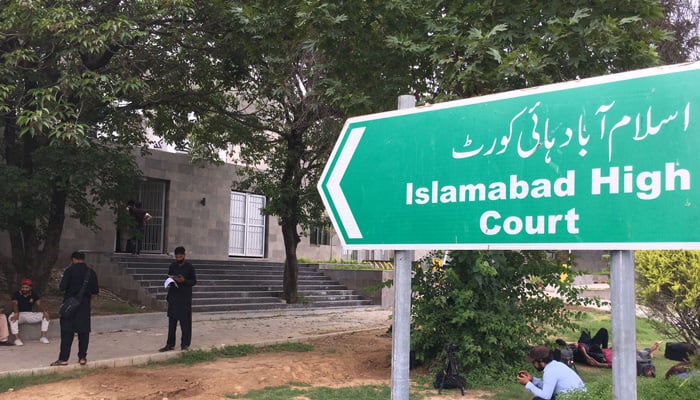The Islamabad High Court (IHC) on Friday emphasized that questions regarding the involvement of spy agencies in enforced disappearance cases must be answered, even after the “recovery” of missing poet Ahmed Farhad. The court rejected the government’s request to dismiss the petition seeking his recovery until he is presented in court.
Justice Mohsin Akhtar Kayani was informed by the petitioner’s lawyer that Farhad had not returned home and had been arrested in another case registered at Saddar Police Station, Muzaffarabad. Farhad’s family met him at another police station following the intervention of a senior AJK Police official, the court was told.
Additional Attorney General Barrister Munawar Iqbal Duggal argued that Farhad was in police custody on physical remand until June 2, rendering the writ petition ‘infructuous’.
However, Justice Kayani noted that the petitioner sought directives for the authorities to identify and investigate those responsible for Farhad’s abduction and illegal detention and to prosecute them under relevant laws.
The court was informed that the missing poet had not returned home and had been re-arrested by AJK police in another case.
Mr. Duggal maintained that the main issue had been resolved since the detainee had been found. He also stated that Pakistani court orders are not binding on the judiciary of Azad Jammu and Kashmir. Nonetheless, Justice Kayani disagreed, stating the detainee must be produced in court after the AJK process is complete.
The petitioner’s lawyer mentioned that a post-arrest bail application for Farhad had been filed, with a potential bail release in a few days.
Justice Kayani stressed that he had raised specific questions regarding enforced disappearances and the legal framework of spy agencies, which would be addressed in due course.
Federal Minister for Law and Justice Azam Nazeer Tarar suggested addressing these questions in another case. On May 24, Justice Kayani issued an order asking intelligence agencies to clarify their role in police investigations and ensure accountability within the court’s jurisdiction.
The order highlighted that the issue of missing persons is a significant public interest matter and noted the lack of legislation defining the responsibilities of law enforcement agencies.
Justice Kayani requested a report from Islamabad police chief Ali Nasir Rizvi on cases involving unknown persons in the past year, including statements from abductors or next of kin and statements recorded from the relevant agency’s sector commander.
The judge remarked that enforced disappearances were damaging the reputation of intelligence agencies and emphasized the need to counter negative public perception.
He summoned the law minister and law secretary for assistance, as well as the sector commanders of ISI, MI, and IB, to understand their conduct and actions taken against officials for illegal detention, blackmail, and surveillance of citizens. The court also sought details on internal accountability procedures within intelligence agencies.




